Litian Ma
Helix: Holistic Optimization for Accelerating Iterative Machine Learning
Dec 14, 2018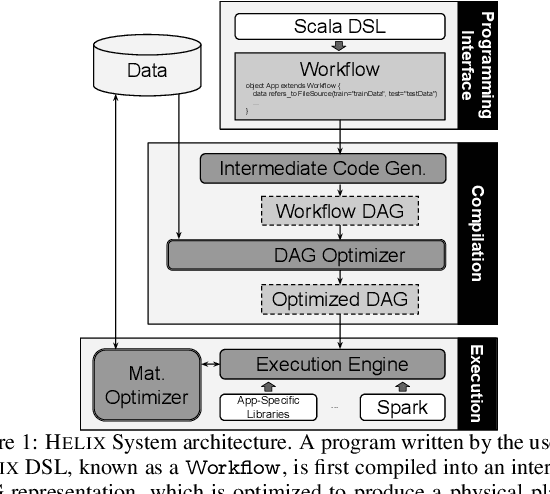
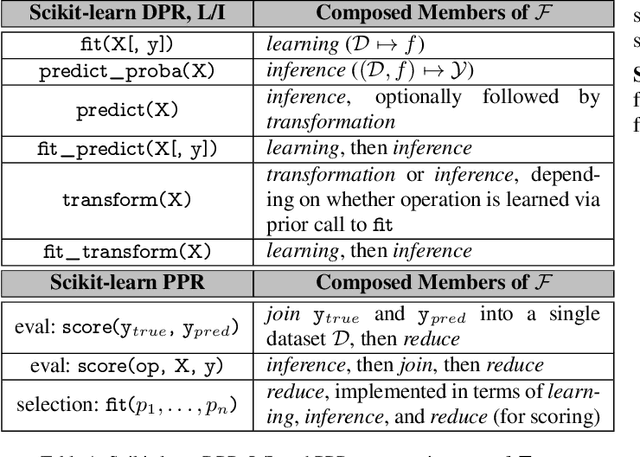
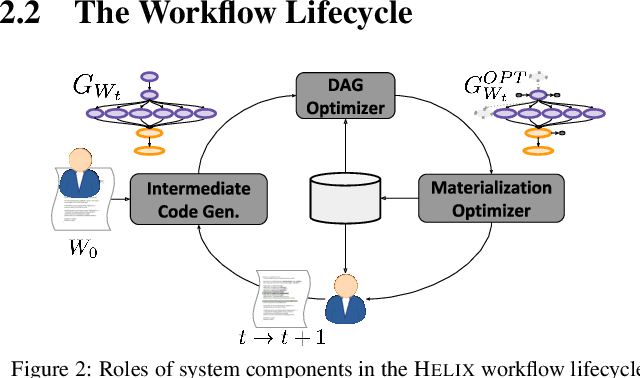

Abstract:Machine learning workflow development is a process of trial-and-error: developers iterate on workflows by testing out small modifications until the desired accuracy is achieved. Unfortunately, existing machine learning systems focus narrowly on model training---a small fraction of the overall development time---and neglect to address iterative development. We propose Helix, a machine learning system that optimizes the execution across iterations---intelligently caching and reusing, or recomputing intermediates as appropriate. Helix captures a wide variety of application needs within its Scala DSL, with succinct syntax defining unified processes for data preprocessing, model specification, and learning. We demonstrate that the reuse problem can be cast as a Max-Flow problem, while the caching problem is NP-Hard. We develop effective lightweight heuristics for the latter. Empirical evaluation shows that Helix is not only able to handle a wide variety of use cases in one unified workflow but also much faster, providing run time reductions of up to 19x over state-of-the-art systems, such as DeepDive or KeystoneML, on four real-world applications in natural language processing, computer vision, social and natural sciences.
Helix: Accelerating Human-in-the-loop Machine Learning
Aug 03, 2018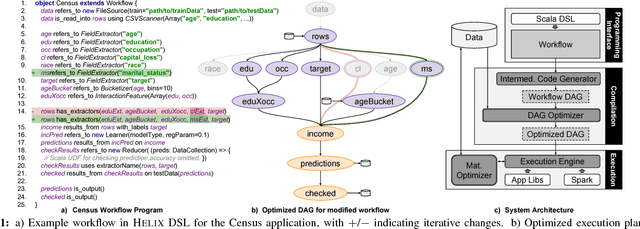
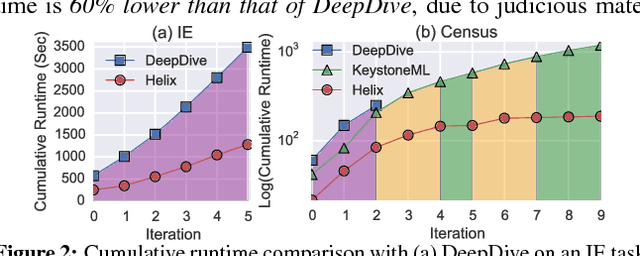

Abstract:Data application developers and data scientists spend an inordinate amount of time iterating on machine learning (ML) workflows -- by modifying the data pre-processing, model training, and post-processing steps -- via trial-and-error to achieve the desired model performance. Existing work on accelerating machine learning focuses on speeding up one-shot execution of workflows, failing to address the incremental and dynamic nature of typical ML development. We propose Helix, a declarative machine learning system that accelerates iterative development by optimizing workflow execution end-to-end and across iterations. Helix minimizes the runtime per iteration via program analysis and intelligent reuse of previous results, which are selectively materialized -- trading off the cost of materialization for potential future benefits -- to speed up future iterations. Additionally, Helix offers a graphical interface to visualize workflow DAGs and compare versions to facilitate iterative development. Through two ML applications, in classification and in structured prediction, attendees will experience the succinctness of Helix programming interface and the speed and ease of iterative development using Helix. In our evaluations, Helix achieved up to an order of magnitude reduction in cumulative run time compared to state-of-the-art machine learning tools.
How Developers Iterate on Machine Learning Workflows -- A Survey of the Applied Machine Learning Literature
May 17, 2018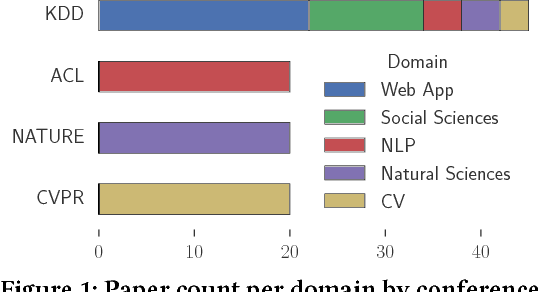

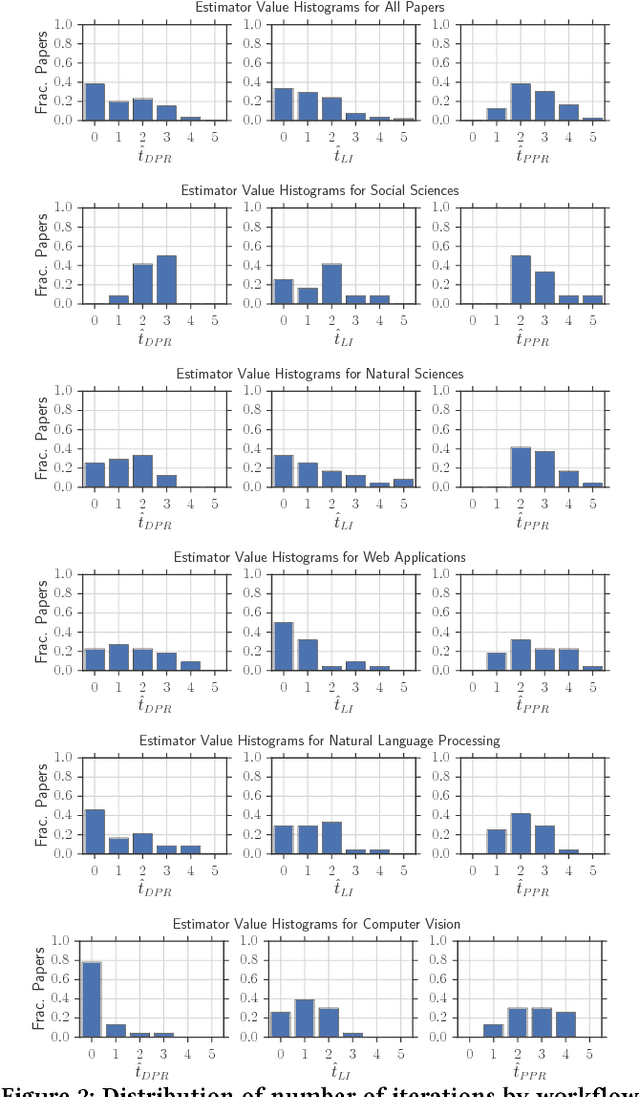

Abstract:Machine learning workflow development is anecdotally regarded to be an iterative process of trial-and-error with humans-in-the-loop. However, we are not aware of quantitative evidence corroborating this popular belief. A quantitative characterization of iteration can serve as a benchmark for machine learning workflow development in practice, and can aid the development of human-in-the-loop machine learning systems. To this end, we conduct a small-scale survey of the applied machine learning literature from five distinct application domains. We collect and distill statistics on the role of iteration within machine learning workflow development, and report preliminary trends and insights from our investigation, as a starting point towards this benchmark. Based on our findings, we finally describe desiderata for effective and versatile human-in-the-loop machine learning systems that can cater to users in diverse domains.
 Add to Chrome
Add to Chrome Add to Firefox
Add to Firefox Add to Edge
Add to Edge